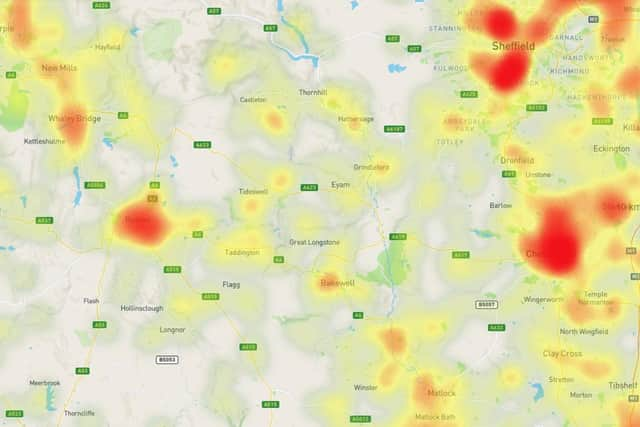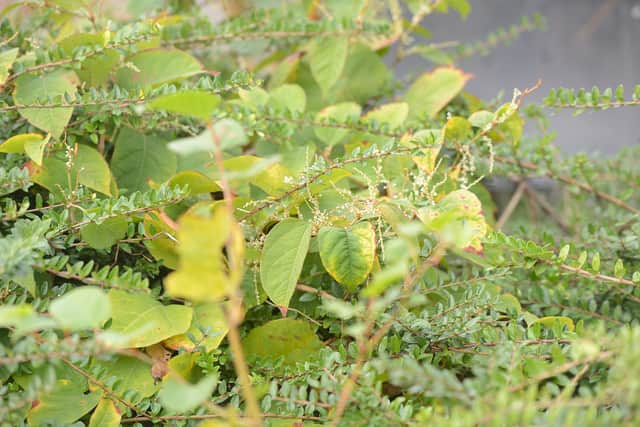Buxton named as hotspot for invasive plant which can decrease property prices and see landowners fined
and live on Freeview channel 276
Specialist removal contractor Environet says there have been 101 cases of Japanese knotweed reported within four kilometres of Buxton this year – the fifth highest number of any population centre in the county. Chesterfield is currently the county’s knotweed epicentre, with 195 sightings.
As the UK’s most invasive plant enters its spring growth phase, the company is tracking cases via an online heatmap so that homeowners and buyers can monitor local risk or report potential sightings.
Advertisement
Hide AdAdvertisement
Hide AdMat Day, the company’s director for Derbyshire, said: “Knowledge is power when it comes to Japanese knotweed. With the stamp duty holiday extended and lockdown restrictions beginning to ease, the property market is busier than ever – but failing to carry out the appropriate checks for knotweed can turn out to be an expensive mistake.


“Despite its fearsome reputation, with professional help, the plant can be dealt with and the value of a property largely restored. I’d urge anyone buying or selling a property, or homeowners wishing to preserve the value of their home, to be vigilant for signs of spring growth and check Exposed to see whether they live in a high-risk area.”
Japanese knotweed begins to grow in March or April and can grow at around ten centimetres a day from May to July, reaching up to three metres in height by mid-summer.
Property owners may first notice purple or red asparagus-like shoots emerging from the ground and quickly growing into lush green shrubs with heart or shovel-shaped leaves and pink-flecked stems.
Advertisement
Hide AdPushing up through cracks in concrete, driveways, patios, paths, drains and even the cavity walls of buildings, the plant can reduce a property’s value by ten per cent and make it difficult to sell, unless a professional treatment plan is in place with an insurance-backed guarantee to satisfy mortgage lenders.


Advertisement
Hide AdAccording to Environet’s research, approximately five per cent of homes are currently affected, either directly or indirectly by a neighbouring affected property, knocking around £20billion off UK house prices.
Those who fail to stop the spread of knotweed on their land can face fines and even a jail sentence under anti-social behaviour legislation.